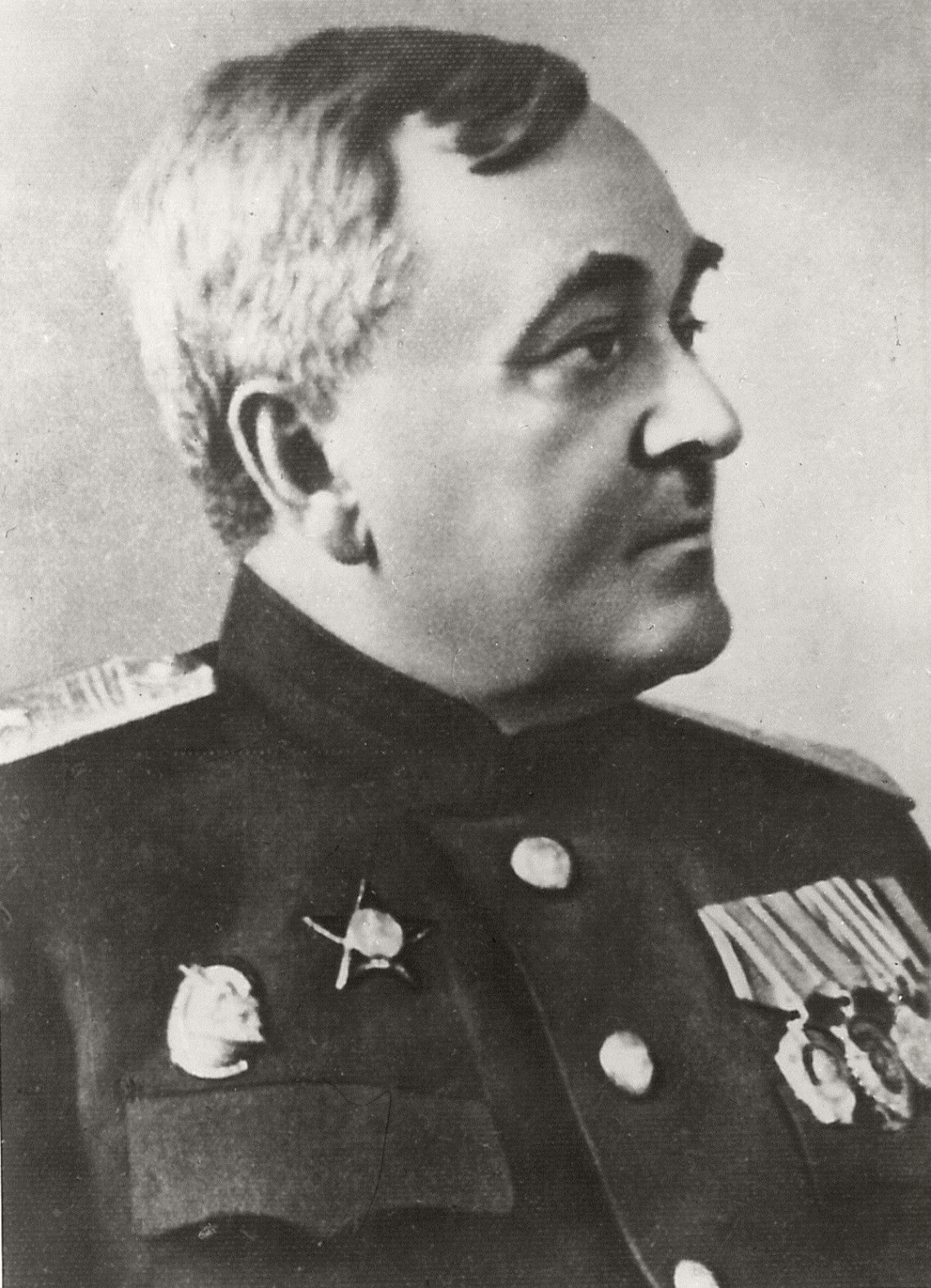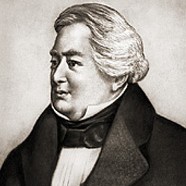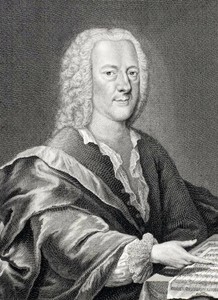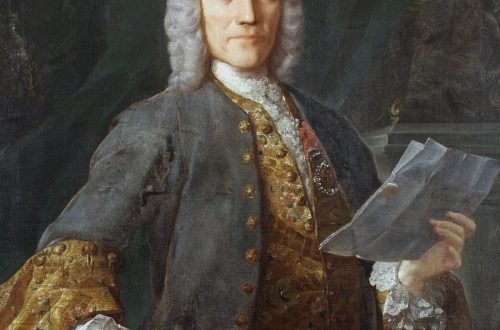
Alexander Vasilievich Alexandrov |
Alexander Alexandrov
A. V. Alexandrov entered the history of Soviet musical art mainly as the author of beautiful, uniquely original songs and as the creator of the Red Banner Song and Dance Ensemble of the Soviet Army, the only one of its kind. Alexandrov also wrote works in other genres, but there were few of them: 2 operas, a symphony, a symphonic poem (all in manuscript), a sonata for violin and piano. His favorite genre was the song. The song, the composer claimed, is the beginning of the beginnings of musical creativity. The song continues to be the most beloved, mass, most accessible form of musical art. This idea is confirmed by 81 original songs and over 70 adaptations of Russian folk and revolutionary songs.
Alexandrov was naturally endowed with a beautiful voice and rare musicality. Already a nine-year-old boy, he sings in one of the St. Petersburg choirs, and after some time he enters the Court Singing Chapel. There, under the guidance of the outstanding choral conductor A. Arkhangelsky, the young man comprehends the intricacies of vocal art and the regency. But Alexandrov was fascinated not only by choral music. He constantly attended symphony and chamber concerts, opera performances.
Since 1900 Aleksandrov has been a student of the St. Petersburg Conservatory in the composition class of A. Glazunov and A. Lyadov. However, he was soon forced to leave St. Petersburg and interrupt his studies for a long time: the damp St. Petersburg climate, strenuous studies, and material difficulties undermined the young man’s health. Only in 1909 did Aleksandrov enter the Moscow Conservatory in two specialties at once – in composition (class of Prof. S. Vasilenko) and vocals (class of U. Mazetti). He presented the one-act opera Rusalka based on A. Pushkin as a graduation work on the composition and was awarded the Big Silver Medal for it.
In 1918, Alexandrov was invited to the Moscow Conservatory as a teacher of musical and theoretical disciplines, and 4 years later he was awarded the title of professor. An important event in the life and work of Aleksandrov was marked in 1928: he became one of the organizers and artistic director of the country’s first Red Army Song and Dance Ensemble. Now it is the Tchaikovsky Red Banner Academic Song and Dance Ensemble of the Soviet Army, which has gained worldwide fame twice. A. V. Alexandrova. Then the ensemble consisted of only 12 people: 8 singers, an accordion player, a reader and 2 dancers. Already the first performance on October 12, 1928 in the Central House of the Red Army under the direction of Alexandrov met with an enthusiastic reception from the audience. As a premiere, the ensemble prepared a literary and musical montage “The 22nd Krasnodar Division in Songs”. The main task of the ensemble was to serve the units of the Red Army, but it also performed in front of workers, collective farmers, and the Soviet intelligentsia. Aleksandoov paid great attention to the ensemble’s repertoire. He traveled a lot around the country, collecting and recording army songs, and then began to compose himself. His first song on a patriotic theme was “Let’s remember, comrades” (Art. S. Alymova). It was followed by others – “Beat from the sky, planes”, “Zabaikalskaya”, “Krasnoflotskaya-Amurskaya”, “Song of the Fifth Division” (all at S. Alymov station), “Song of partisans” (art. S. Mikhalkov) . Echelonnaya (poems by O. Kolychev) won especially wide popularity.
In 1937, the government decided to send the ensemble to Paris, to the World Exhibition. On September 9, 1937, the Red Banner ensemble in military uniform stood on the stage of the Pleyel concert hall, filled to capacity with listeners. To the applause of the public, Alexandrov stepped onto the stage, and the sounds of the Marseillaise poured into the hall. Everyone got up. When this exciting anthem of the French Revolution sounded, there was a thunder of applause. After the performance of the “Internationale” the applause was even longer. The next day, rave reviews about the ensemble and its leader appeared in the Parisian newspapers. The famous French composer and music critic J. Auric wrote: “What can such a choir be compared to?.. How not to be captured by the flexibility and subtlety of nuances, the purity of sound and, at the same time, the teamwork that turns these singers into a single instrument and what kind. This ensemble has already conquered Paris … A country that has such artists can be proud of. Alexandrov worked with redoubled energy during the Great Patriotic War. He composed many bright patriotic songs, such as the Holy Leninist Banner, 25 Years of the Red Army, a Poem about Ukraine (all on O. Kolychev’s station). Of these, – wrote Alexander Vasilyevich, – “Holy War” entered the life of the army and the whole people as a hymn of revenge and curses against Hitlerism. This alarm-song, the oath-song, and now, as in the harsh war years, deeply excites the Soviet people.
In 1939, Alexandrov wrote the “Hymn of the Bolshevik Party” (Art. V. Lebedev-Kumach). When the competition for the creation of a new Anthem of the Soviet Union was announced, he presented the music of the “Hymn of the Bolshevik Party” with the text of S. Mikhalkov and G. El-Registan. On the night before 1944, all radio stations of the country for the first time transmitted the new Anthem of the Soviet Union performed by the Red Banner Ensemble.
Performing a huge amount of work in servicing the units of the Soviet Army, both during the war years and in peacetime, Aleksandrov also showed concern for the aesthetic education of the Soviet people. He was convinced that the Red Banner Ensemble of the Red Army Song and Dance could and should serve as an example for the creation of ensembles at workers’ clubs. At the same time, Alexandrov not only gave advice on the creation of choral and dance groups, but also provided them with practical assistance. Until the end of his days, Alexandrov worked with his inherent enormous creative energy – he died in Berlin, during the tour of the ensemble. In one of his last letters, as if summing up his life, Alexander Vasilyevich wrote: “… How much has been experienced and what path has been traveled from the time when I was a boy in bast shoes to the present moment … There was a lot of good and bad. And life was a continuous struggle, full of work, worries … But I do not complain about anything. I thank fate for the fact that my life, my work has brought some fruits to the dear Fatherland and people. This is a great happiness … “
M. Komissarskaya





